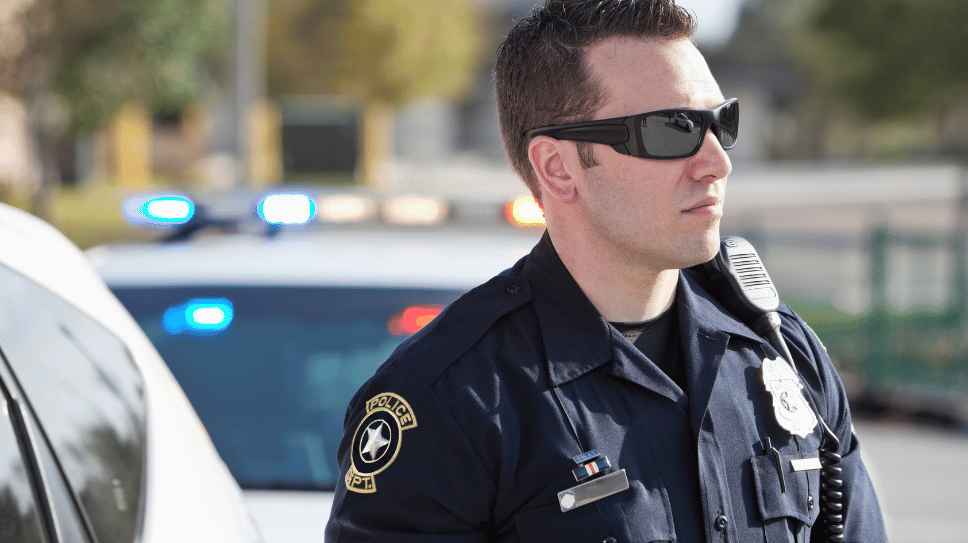Sleep apnea can disrupt sleep and cause problems with concentration, focus, and energy. When a person cannot sleep, they experience mood disruption and physical health issues, not to mention the physical issues presented with sleep apnea.
Police officers are not immune to sleep apnea. In fact, they suffer from this condition more than others, which may pose a health and safety risk. With sleep apnea normally self-diagnosed, police officers may not recognize the symptoms or seek help if they are struggling. Some may turn to substances to stay awake, not realizing what they are doing to their brains and bodies in the meantime. Find out more about the challenges of sleep apnea and how to navigate them more effectively.
What is Sleep Apnea?
Sleep apnea is a sleep disorder that causes a person to stop breathing. This usually happens at night, but can occur anytime the person sleeps, including naps. Apnea rates increase with age and in older adults, as well. Sleep apnea is where episodes of at least 10 seconds decrease airflow more than 80%. Hypopneas are the same except with different airflow issues. The two things often get lumped together. So many apnea sufferers do not realize a problem exists until someone alerts them to it. Sometimes it happens when a person is napping, or when they sleep for longer than a few hours. If a person wakes up feeling more groggy and tired after a full nights’ rest, they may be suffering from some form of apnea that is disrupting their sleep and, eventually, their waking hours will suffer.
Why Police Have Apnea
Police officers work hard at staying in shape and being healthy. This helps them do their job well. They usually weigh less than the average person because they have to pass a yearly physical for work. Increased weight is a risk factor for sleep apnea but not always. In general, people have a sleep problem because of our 24/7 lifestyles. Being on the go as much as people are now, staying up late, waking early, and not getting into a healthy rhythm of rest, nutrition, and sleep work against people over time. Police work shifts in dangerous and stressful situations. They may struggle with mental health issues and addiction, which bring sleep and other issues along with them.
Issues of Public Safety
Sleepiness among police forces is nothing new. Over half of police-reported falling asleep at the wheel on their jobs. Many make mistakes administratively or on the job. Clinical sleep apnea is usually diagnosed following a sleep study to see what issues exist, but people can tell the symptoms if they know what to look out for. Anyone who works shifts is likely to have disordered sleep because they are not sleeping with the healthy rhythms of light and dark when most people would sleep (nighttime versus daytime sleeping for night shift). Police also work sedentary jobs where they can sit for long hours on patrol or in the office. They may eat more fast food because that is what is available on shift. Healthy eating leads to a healthier weight and police are not immune to being overweight when they may experience less patrol work and more sitting down on the job during shifts. Regardless of their work type, they are more prone to sleep apnea than the general population.
Prevention and Treatment
Sleep apnea usually needs a sleep study or test to clinically diagnose the issues. A person can treat it with weight loss, a CPAP air machine, or dental devices. Weight loss and fitness is the first priority because that is how people prevent sleep apnea in the first place. CPAP works very well for some but not everyone likes it. As far as safety goes, police officers who are not able to sleep well are going to have other health issues and may put people at risk while on patrol. Over time, lack of decent sleep can also indicate underlying health conditions with the heart or cardiovascular system which may need more than a machine to fix. Overall health is important for first responders. Other treatments might include:
- Addiction and mental health treatment or support
- Help for sleep disorders
- Change of shifts to accommodate better sleep
- Nutritional counseling
- Therapy and counseling to deal with underlying issues that disrupt sleep
How to Cope
There are many ways to deal with sleep apnea or sleep disorders for police officers. It is crucial they find support for their health so they can be on top of their game at work. Their health and the safety of others is at risk when they are sleep deprived. The goal is to find support when there is a challenge, not to stigmatize the issue. Many people are sleep deprived and do just fine. They don’t put anybody else at risk, however, it is an overall health issue to not get enough sleep so the more sleep a person can get, the better they will feel. Police officers may struggle with sleep apnea, then fall into a trap of taking medications or drinking caffeine to stay alert on the job. It is better for a police officer’s overall health and well-being to look at ways to enhance current sleep patterns and circadian rhythms so they can continue serving others well.



